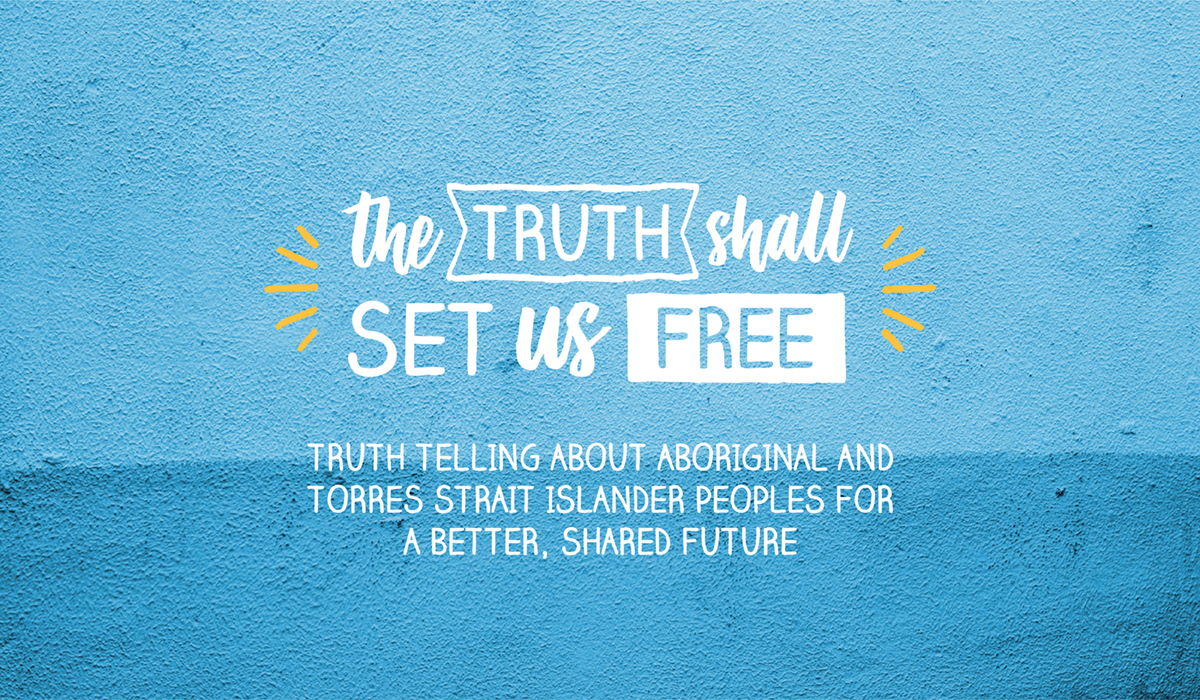
THE TRUTH SHALL SET US FREE
Truth telling about Aboriginal and Torres Strait Islander peoples for a better, shared future.
As many of you know, this week is NAIDOC week, and the theme this year is “Voice. Treaty. Truth.” In line with this, we’re going to be doing our own truth-telling here, to contribute to that happening all over the nation. Some truths will be familiar, some hard to hear. Others may be hard to believe, but all are worth knowing and remembering because they hold the key to a better future – for all Australians.
8 hard truths we need to hear about Aboriginal and Torres Strait Islander children
- 18,000 Aboriginal and Torres Strait Islander children are today in the out-of-home care service system within Australia.
- 22 years after the Bringing Them Home report was released, Australia has not managed to curb the rate of removal of children from Aboriginal and Torres Strait Islander families and communities.
- According to The Australian Institute of Health and Welfare, Aboriginal and Torres Strait Islander children continue to be 10 times more likely than non-Aboriginal and Torres Strait Islander children to be removed and placed in out-of-home care services.
- Between the ages of 10 and 14 years, they are also 8.4 times more likely to complete suicide, according to Dr Tracey Westerman, Managing Director of Indigenous Psychological Services.
- From January to June this year alone, Dr Westerman has stated, 56 children, aged 14 and under have completed suicide. 56 children. In less than six months.
- Incarceration rates also remain at an all-time high. The ABS reported in a census conducted on the 30th June 2018, that of the 45,170 people incarcerated in Australia on that night almost 30% were Aboriginal or Torres Strait Islander.
- In the Northern Territory, the same census found that, of the children and young people detained in Juvenile Detention Centres across the Northern Territory, 100% were Aboriginal.
These statistics are today’s truth. Compile these with those of our shared Australian past, and you begin to understand more clearly why the road to reconciliation is a difficult one.
The journey is not without hope, however, because while these sad truths threaten to overwhelm us, we have others that we draw strength from and make use of.
3 equally important truths about Aboriginal and Torres Strait Islander youth in crisis
- Aboriginal and Torres Strait Islander children are born into a culture that is a gift to our nation.
- For over 60 millennia, Aboriginal and Torres Strait Islander peoples thrived in this country.
- When Aboriginal and Torres Strait Islander peoples are empowered to be the architects of their own lives, they still thrive.
Increasingly around the country, these truths are seeing the light of day. More and more we, and other non-profit organisations like ours, are putting the pieces of a shattered puzzle together – recognising that when First Nation Peoples’ voices are welcomed to the table and genuinely listened to, their know-how, skills and innovations are of great benefit to us all.
How you can help
If you’ve read this far, it’s fair to say you’re interested in being an ally to young First Nation Peoples. Here’s what you can do:
- Get used to listening and supporting, rather than speaking for, Aboriginal and Torres Strait Islander peoples.
- Make room at the table for new ideas. Don’t be fooled into believing all that rich ancestral knowledge has been lost – or that it’s of no use against today’s problems.
- Show support for Indigenous organisations and organisations who support Indigenous people. Follow them on social media, and you’ll soon start to see how effective and sustainable community-led programs and partnerships are in combating poverty, homelessness, unemployment, violence and racism.
- Read the Uluru Statement from the Heart. Put your name on the Supporters’ List and tell people you have.
- Get to know the real history of Australia. It’s a lot more layered than what most of us learned in school.
- Once you know more, start conversations with family and friends. If you hear negative stereotypical views being express, champion the strength and ingenuity of Aboriginal and Torres Strait Islander peoples.
- Share the voices of our First Peoples, the trials and the triumphs, and reward mainstream media when they report on positive news. This all promotes the strength of Indigenous culture, which should be a source of pride for all Australians.
NAIDOC week provides plenty of opportunities – for listening, witnessing and reflecting. We’d love to know; is there anything you’ll be taking from the list here?

 EMERGENCY ACCOMMODATION
EMERGENCY ACCOMMODATION



